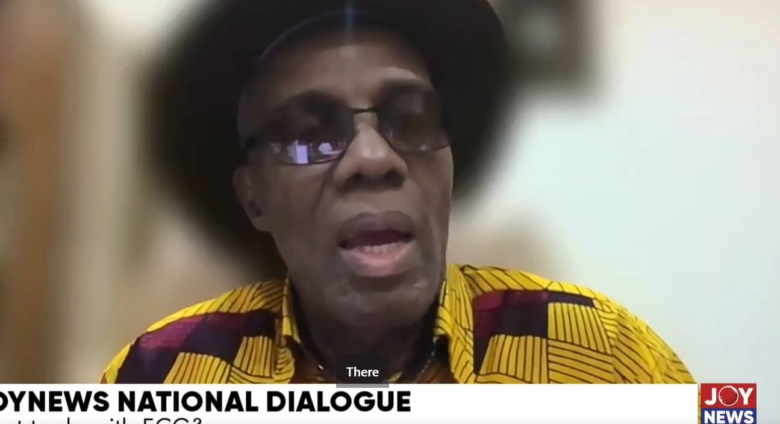The chairman of the Technical Committee on the Privatisation of the Electricity Company of Ghana (ECG), Jabesh Amissah-Arthur, has advised Chief Executive Officers (CEOs) of public institutions to develop the courage and skills to withstand external political interference in their line of duty.
His remarks come amid growing concerns about the politicisation of state-owned enterprises in Ghana, including the energy sector, where political influence is often cited as a barrier to efficiency and sound decision-making.
Speaking at the JoyNews National Dialogue on Thursday, April 10, Mr Amissah-Arthur acknowledged that political interference in state institutions is inevitable but stressed that it is the responsibility of top management to protect their organisations from undue political pressure that could compromise their operations.
Read also: ECG was never at the table in terms of revenue – Dubik Mahama
He explained that the ability to minimise the negative impact of political influence is a key test of leadership, especially for CEOs in the public sector.
“A lot of people have talked about political interference, but what I will say is that political interference is everywhere, and it is the duty of top management to keep political interference to a minimum and away from it. If you are a CEO and you cannot protect the company from external influences that let it do things that it shouldn't do, then maybe you should ask yourself if you are in the right place," he noted.
Mr Amissah-Arthur noted that while leaders cannot outrightly ignore directives from political authorities, they must find ways to advise, negotiate, or propose alternative solutions that serve the best interests of the company and the country.
“You have to be able to point out to the person who is giving you the instruction that this will not work and will not be to the benefit of the organisation,” he said.
He urged public servants to always act in the best interest of the people of Ghana, adding that it is not enough to hide behind the excuse of “orders from above” to implement harmful policies.
According to Mr Amissah-Arthur, the real test of leadership lies in a CEO’s ability to protect institutional integrity while finding innovative ways to meet government expectations without compromising the organization’s values or sustainability.
Latest Stories
-
If religion was a factor, I would’ve stepped aside – Dr Bawumia warns against tribal politics in NPP
25 minutes -
Okada rider survives brutal machete attack in Boinso, suspect arrested
29 minutes -
Photos: Asantehene graces son’s graduation at DPS International
2 hours -
Deputy Works and Housing Minister visits Ecobank-JoyNews Habitat Fair Clinic
3 hours -
Abdul Bashiru Hussein: The unseen spark lighting up Ghana’s football future
3 hours -
2025 FIFA Club World Cup: Is European supremacy a myth?
3 hours -
Brazil express interest in hosting 2029 FIFA Club World Cup
3 hours -
TCL hosts West Africa Regional launch in Accra, showcasing innovation and strengthening partnerships
3 hours -
Lecturer advocates mandatory teaching and military training for National Service Personnel
3 hours -
Hundreds of kids and coaches undergo Tennis training in Accra
3 hours -
‘We’ll always be available’ – Roger Smith commits to long-term support for Ghana Tennis
3 hours -
Ghana has enough fuel to last over 2 months – NPA boss
4 hours -
2 dead, three injured in building collapse at Kotokuraba’s London Bridge area
4 hours -
‘It is exciting’ -Tennis star Katrina Adams poised for clinic in Ghana
4 hours -
Nigeria: Five die as bomb explosion rocks Kano
5 hours

